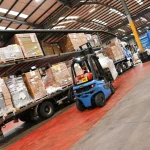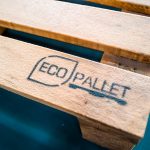
Your Heat-Treated Pallet Checklist: 7 Questions to Ask Before Buying in Kenya
Introduction
If you’re in Kenya’s logistics, agriculture, or export industry, you already know that choosing the right pallets is crucial for smooth business operations. But not all pallets are the same—using low-quality or uncertified heat-treated pallets can lead to shipping delays, rejected goods, and costly replacements.
To ensure you’re making the best choice, ask yourself these 7 critical questions before purchasing heat-treated pallets. This checklist will help you avoid poor-quality products, ensure regulatory compliance, and maximize your investment in sustainable, durable pallets.
1. Is the Pallet ISPM-15 Certified?
If you’re exporting goods, this is the most important question to ask.
What is ISPM-15?
ISPM-15 (International Standards for Phytosanitary Measures No. 15) is a global regulation that requires wooden pallets to be heat-treated to prevent the spread of pests.
How to Identify an ISPM-15 Certified Pallet
- Look for the IPPC (International Plant Protection Convention) stamp
- Check for the “HT” (Heat Treatment) mark
- Ensure the supplier provides documentation of certification
Risks of Using Non-Certified Pallets
- Your shipments may be rejected at international ports
- Increased risk of pests, contamination, and fines
- Delays in customs clearance and added costs
Always verify ISPM-15 certification before purchasing heat-treated pallets for export and international shipping.
2. What Type of Wood is Used?
Not all wood is the same! The type of wood used affects durability, weight, and sustainability.
Best Wood Types for Heat-Treated Pallets
- Pine – Lightweight, cost-effective, and easy to heat-treat
- Eucalyptus – Strong, durable, and sustainable
- Hardwoods (e.g., Mahogany, Acacia) – More durable but heavier and expensive
Why Sustainable Wood Matters
- Reduces deforestation and supports Kenya’s green economy goals
- Ensures longer-lasting pallets, reducing replacement costs
- Helps businesses comply with environmental regulations
Ask suppliers about the wood source and sustainability certification before making a purchase.
3. What is the Pallet’s Load Capacity?
Buying a pallet without checking weight capacity can lead to breakages, product damage, and safety risks.
Understanding Load Ratings
- Static Load – The weight a pallet can hold when stationary
- Dynamic Load – The weight a pallet can carry while being lifted or moved
- Racking Load – The weight a pallet can support when stored in a rack system
Choosing the Right Load Capacity
- Lightweight goods? Standard pallets work
- Heavy industrial equipment? Go for heavy-duty pallets
- Stacking pallets? Ensure high racking load capacity
Always ask for weight capacity details to avoid costly damages.
4. Is the Supplier Reputable and Compliant?
Not all pallet suppliers provide genuine heat-treated pallets.
How to Spot a Reliable Supplier in Kenya
- Check online reviews and ratings
- Ask for compliance certificates (ISPM-15, sustainability certification)
- Request samples or visit the warehouse
Red Flags of a Bad Supplier
🚩 No certification or unclear documentation
🚩 Cheap pricing that seems too good to be true
🚩 Poor-quality or damaged pallets
Always verify your supplier before making bulk purchases.
5. Are the Pallets New or Recycled?
Both new and recycled pallets have their own advantages.
New vs. Recycled Heat-Treated Pallets
| Feature | New Pallets | Recycled Pallets |
|---|---|---|
| Durability | High | Medium to High |
| Cost | Expensive | More affordable |
| Environmental Impact | Uses new wood | More sustainable |
For exporting food or pharmaceuticals, new pallets may be the best option. For local transport, recycled pallets can be a cost-effective, eco-friendly choice.
6. What is the Cost and Long-Term Value?
Factors Affecting Pallet Prices in Kenya
- Wood type (softwood is cheaper, hardwood is pricier)
- Load capacity (heavier-duty pallets cost more)
- Supplier reputation and certification
Instead of focusing on cheap prices, look for long-term durability to save costs in the long run.
7. Are the Pallets Suitable for Your Industry?
Different industries have different pallet needs.
- Food & Pharma: Must meet hygiene and safety standards
- Manufacturing: Requires high weight capacity pallets
- Exports: Needs ISPM-15 certified pallets
Make sure your pallets meet industry regulations before buying.
Conclusion
Choosing the right heat-treated pallets is essential for business efficiency, cost savings, and sustainability. Before purchasing, always ask:
✅ Is it ISPM-15 certified?
✅ What wood type is used?
✅ What is the load capacity?
✅ Is the supplier reliable?
✅ Are the pallets new or recycled?
✅ Is the cost justified by durability?
✅ Are they suitable for my industry?
Invest wisely, and ensure your business runs smoothly, safely, and sustainably!





Add a comment